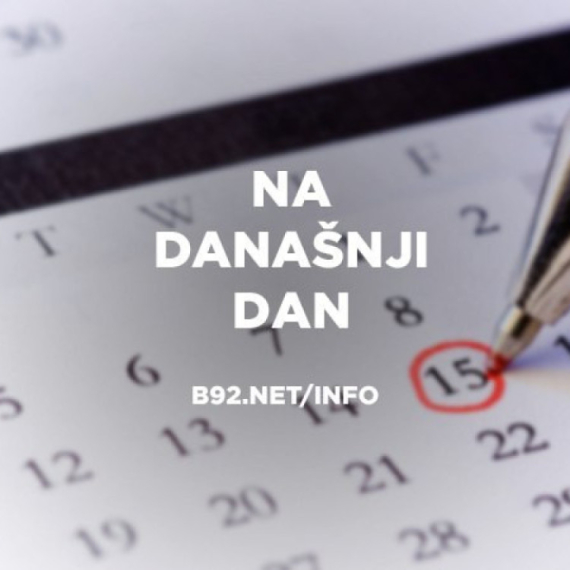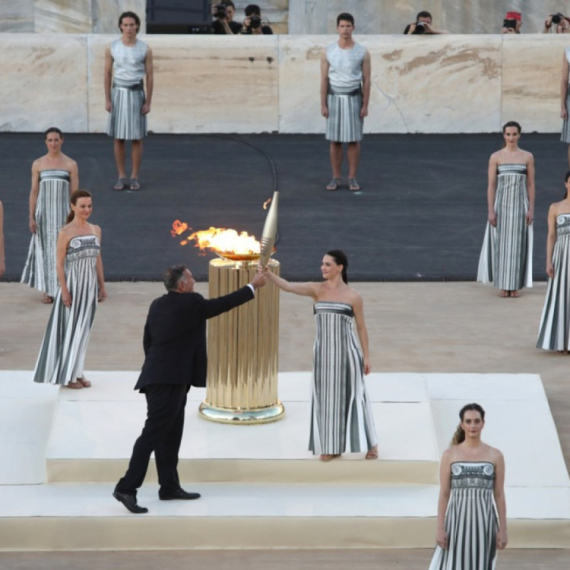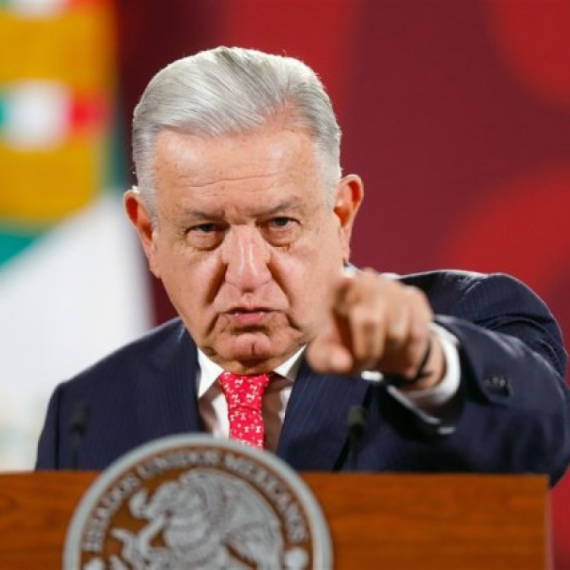"Serbs, Croats feared SRS volunteers"
Mladen Kulić has decided to forgo the protective measures accorded him at the trial of Slobodan Milošević.
Friday, 07.03.2008.
13:00

Mladen Kulic has decided to forgo the protective measures accorded him at the trial of Slobodan Milosevic. Now, at the trial of Serb Radical Party (SRS) leader Vojislav Seselj, Kulic testified in an open session about events that took place in western Slavonia in 1991 "Serbs, Croats feared SRS volunteers" In October 2002, Mladen Kulic testified at the Milosevic trial as witness C-60, with image distortion. He talked about events in western Slavonia, particularly about crimes against Croat civilians in the village of Vocin. As the local Territorial Defense, SRS volunteers and Serb civilians pulled out of the village, some 40 Croat villagers were killed. The indictment states that the only survivors were those Croats who managed to hide from the local territorial defense group and Seselj’s men. The prosecution intended to call Kulic to testify about these same events at Seselj’s trial as a protected witness. However, following his arrival in The Hague, the witness decided to forgo protective measures, saying that “the circumstances have changed.“ As the accused insisted on further clarification, Kulic said that the atmosphere in both Croatia and Serbia was different now to what it was in 2002. His family had agreed that he could give evidence without protective measures. Seselj asked him if he thought of him as a threat. ‘Not you personally, but of some of your party members, yes’, the witness replied. Before the war, Kulic held various posts in Podravska Slatina. For a while, he managed the Univerzal metal processing plant. In May 1991, he suffered the same fate as so many other Serbs working in the local authorities: he was fired from his post as the manager of the Institute for Social Planning and Statistics. In late August 1991, he left Podravska Slatina and went to Vocin where he was drafted into the local Serb Territorial Defense. During his testimony, the prosecutor cited a number of documents in which the Territorial Defense had asked the Ministry for Serbs outside Serbia to dispatch volunteers to Novska, Okucani and other locations in western Slavonia. A memo from the SRS war staff in Belgrade was also submitted as evidence. The memo stated the conditions under which the SRS would dispatch its volunteers to western Slavonia. Kulic described the defendant’s visit to the village of Vocin in November 1991 and the conduct of SRS volunteers. Both Croat and Serb villagers were afraid of them. The witness left Vocin on December 8, 1991, but heard about the massacre that took place five days later. He testified about it on the basis of what he had heard later from eye-witnesses to the murders of some 40 Croat villagers. As far as he knew, two masked villagers had guided the killers, pointing out Croat houses to the volunteers. In 1995, Kulic was arrested in Croatia and was tried in Bjelovar. He was charged with the Vocin massacre. He was acquitted for a lack of evidence. At the beginning of his cross-examination, Seselj insisted on this fact, claiming that Kulic had defended himself by shifting the blame on to others. He accused Kulic of being a member of the Territorial Defense unit from Vocin that had massacred twenty Croat civilians in the village of Cetekovci in September 1991. The accused said that this crime had been committed before the arrival of the first volunteers from Serbia to western Slavonia. Later, when the volunteers came, “it became standard procedure for this criminal group from Vocin” to blame volunteers from Serbia for their crimes, he claimed. ‘Nobody accused the volunteers without reason’, Kulic replied. The case continues.
"Serbs, Croats feared SRS volunteers"
In October 2002, Mladen Kulić testified at the Milošević trial as witness C-60, with image distortion. He talked about events in western Slavonia, particularly about crimes against Croat civilians in the village of Voćin.As the local Territorial Defense, SRS volunteers and Serb civilians pulled out of the village, some 40 Croat villagers were killed.
The indictment states that the only survivors were those Croats who managed to hide from the local territorial defense group and Šešelj’s men.
The prosecution intended to call Kulić to testify about these same events at Šešelj’s trial as a protected witness. However, following his arrival in The Hague, the witness decided to forgo protective measures, saying that “the circumstances have changed.“
As the accused insisted on further clarification, Kulić said that the atmosphere in both Croatia and Serbia was different now to what it was in 2002. His family had agreed that he could give evidence without protective measures. Šešelj asked him if he thought of him as a threat. ‘Not you personally, but of some of your party members, yes’, the witness replied.
Before the war, Kulić held various posts in Podravska Slatina. For a while, he managed the Univerzal metal processing plant. In May 1991, he suffered the same fate as so many other Serbs working in the local authorities: he was fired from his post as the manager of the Institute for Social Planning and Statistics.
In late August 1991, he left Podravska Slatina and went to Voćin where he was drafted into the local Serb Territorial Defense.
During his testimony, the prosecutor cited a number of documents in which the Territorial Defense had asked the Ministry for Serbs outside Serbia to dispatch volunteers to Novska, Okučani and other locations in western Slavonia.
A memo from the SRS war staff in Belgrade was also submitted as evidence. The memo stated the conditions under which the SRS would dispatch its volunteers to western Slavonia.
Kulić described the defendant’s visit to the village of Voćin in November 1991 and the conduct of SRS volunteers. Both Croat and Serb villagers were afraid of them.
The witness left Voćin on December 8, 1991, but heard about the massacre that took place five days later. He testified about it on the basis of what he had heard later from eye-witnesses to the murders of some 40 Croat villagers. As far as he knew, two masked villagers had guided the killers, pointing out Croat houses to the volunteers.
In 1995, Kulić was arrested in Croatia and was tried in Bjelovar. He was charged with the Voćin massacre. He was acquitted for a lack of evidence.
At the beginning of his cross-examination, Šešelj insisted on this fact, claiming that Kulić had defended himself by shifting the blame on to others. He accused Kulic of being a member of the Territorial Defense unit from Voćin that had massacred twenty Croat civilians in the village of Cetekovci in September 1991.
The accused said that this crime had been committed before the arrival of the first volunteers from Serbia to western Slavonia. Later, when the volunteers came, “it became standard procedure for this criminal group from Voćin” to blame volunteers from Serbia for their crimes, he claimed.
‘Nobody accused the volunteers without reason’, Kulić replied.
The case continues.































Komentari 0